.
So der Plan von Blue Origin´s privaten Raumflug:
.
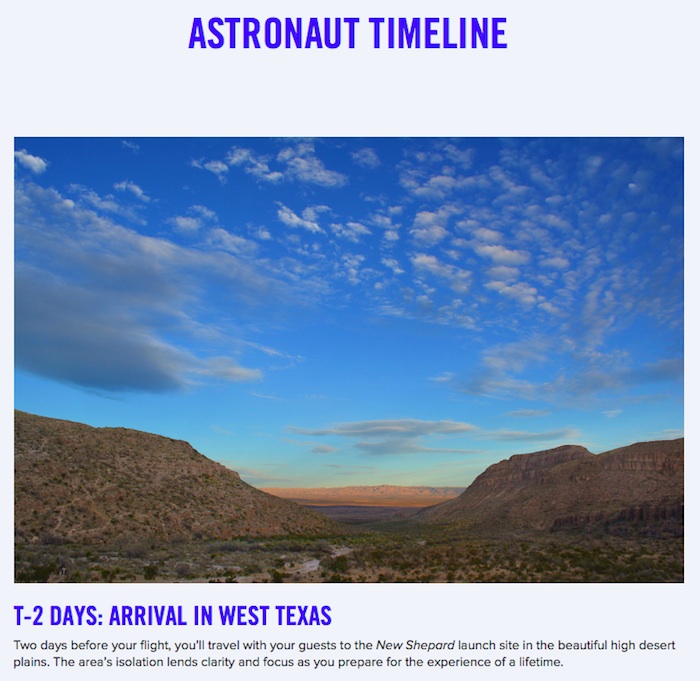
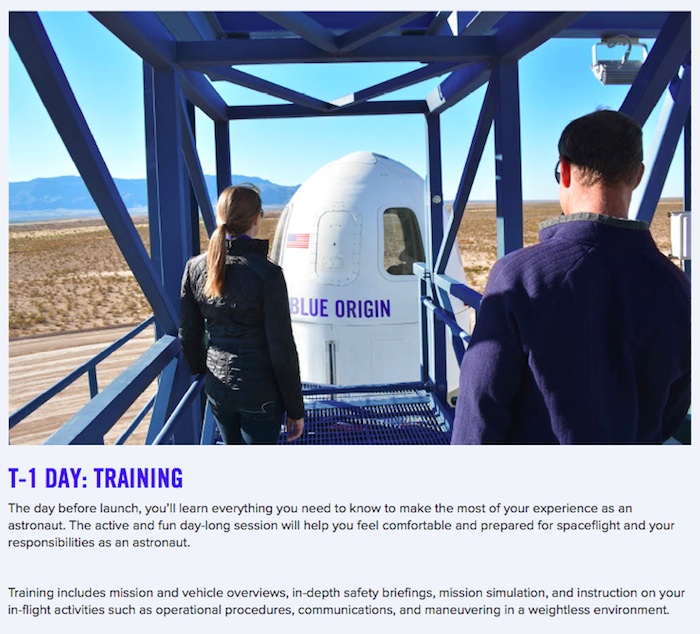
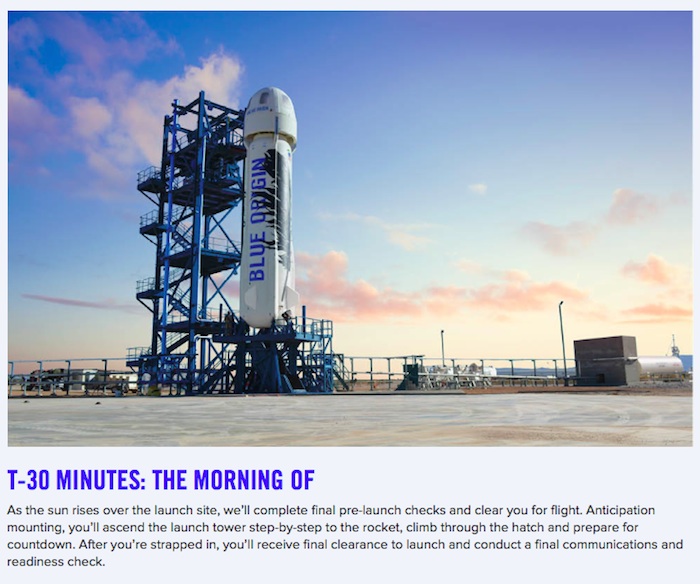
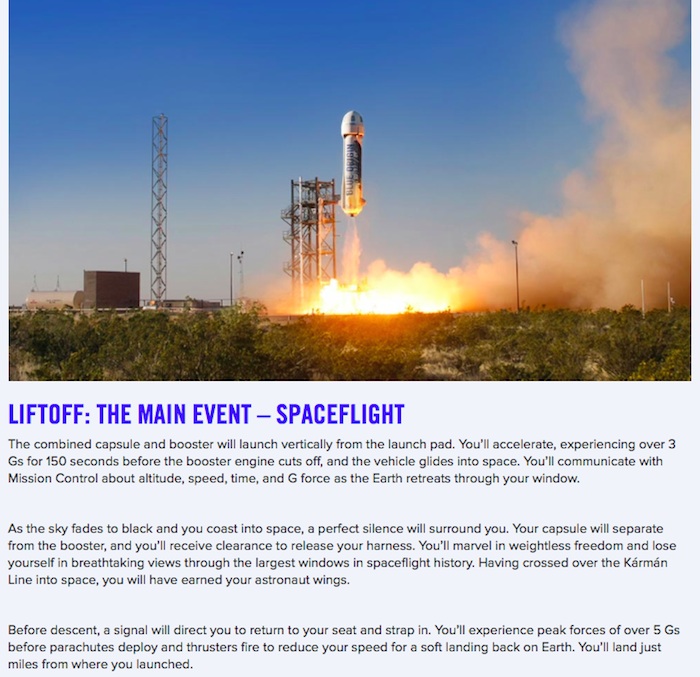
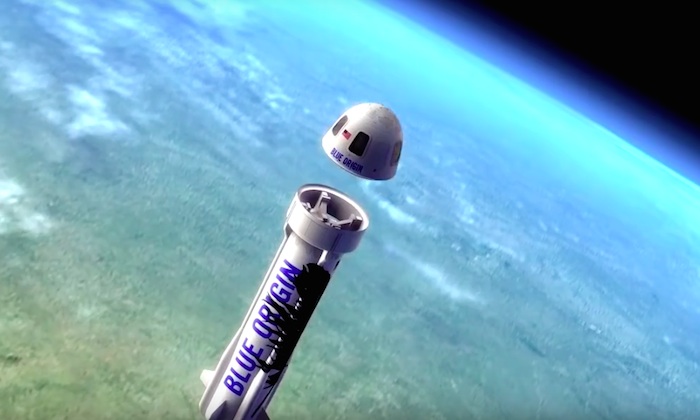
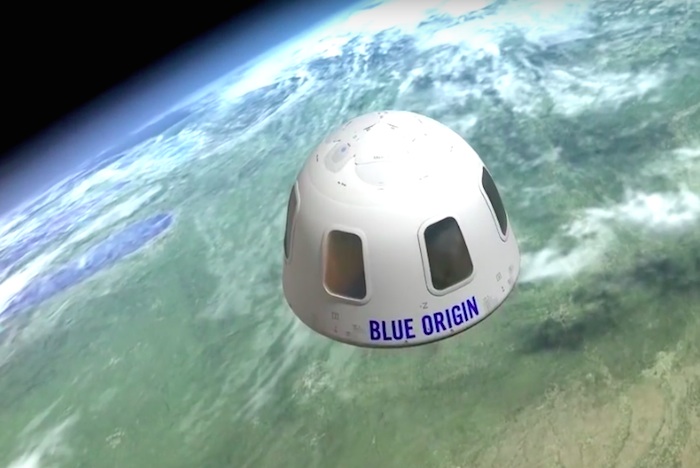
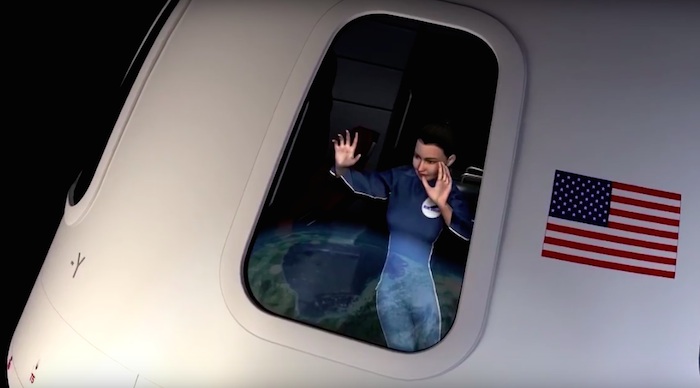
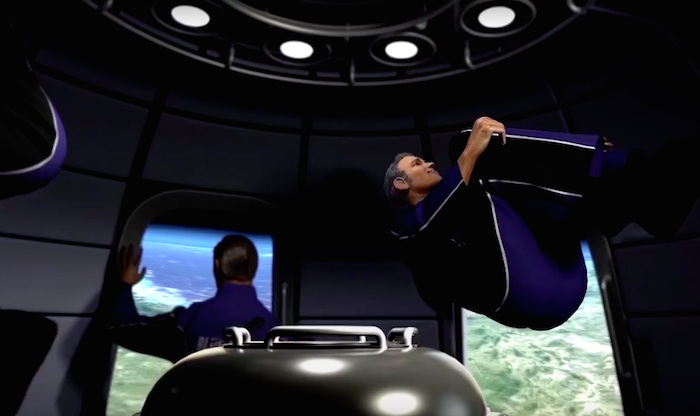
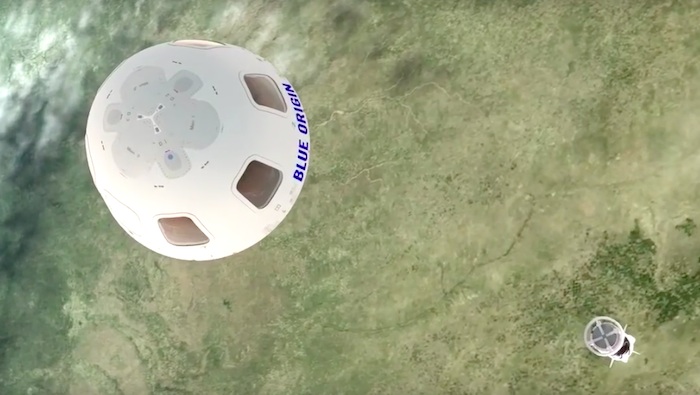
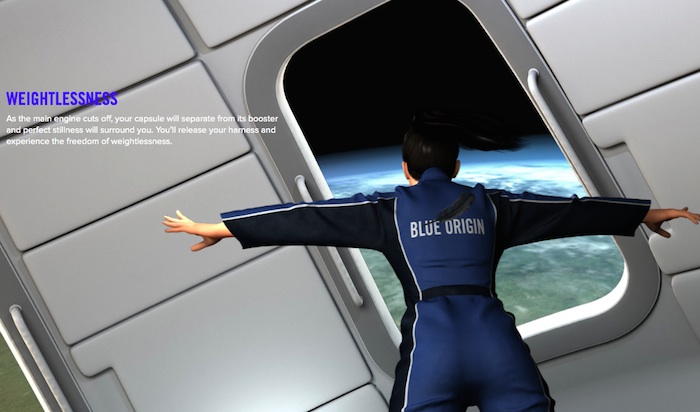
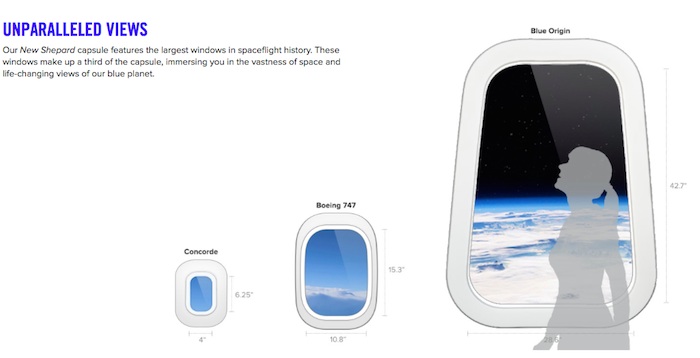
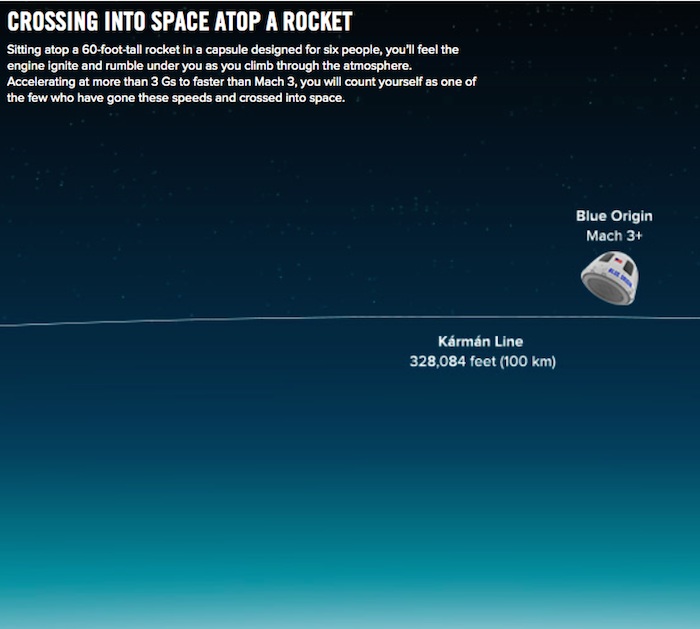
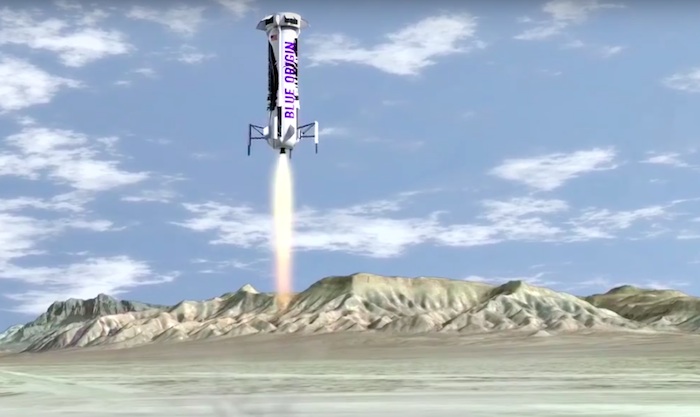
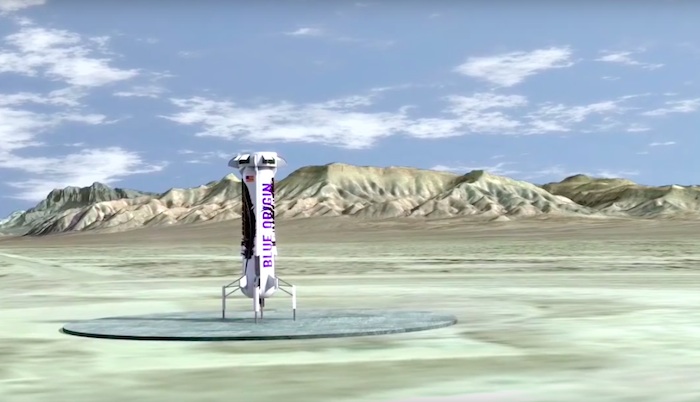
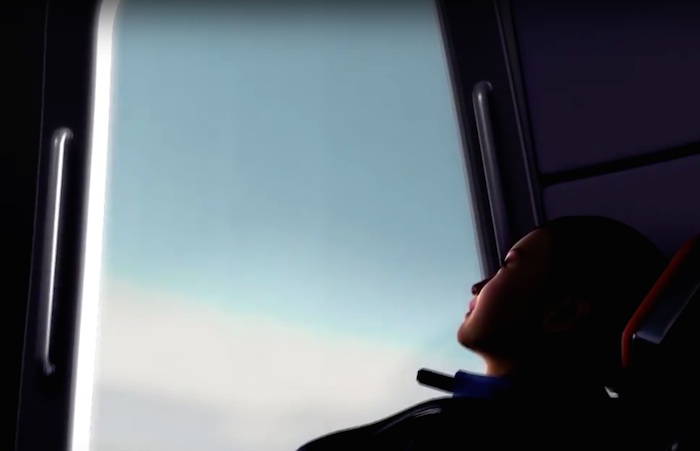
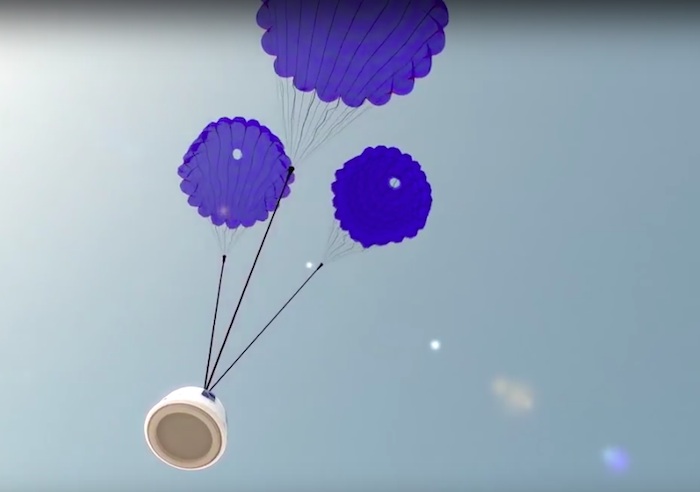
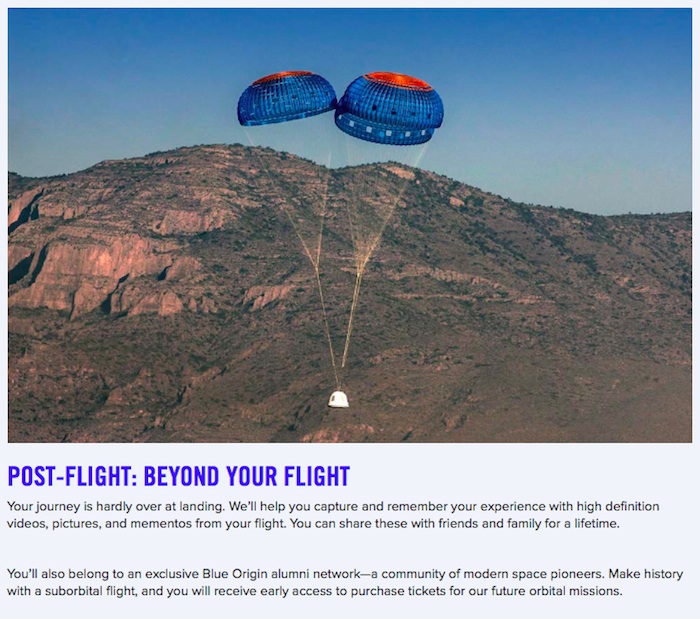
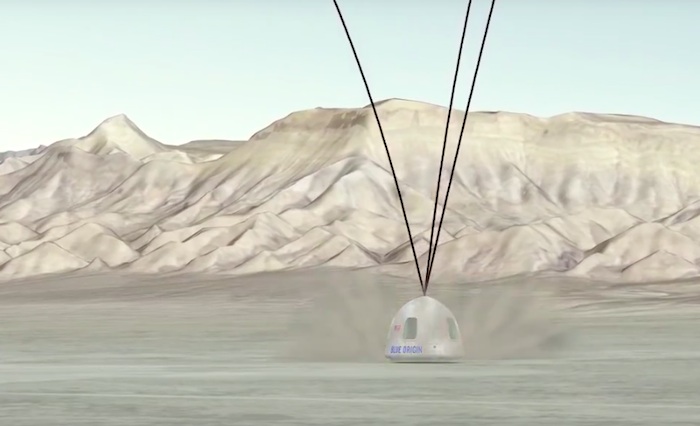
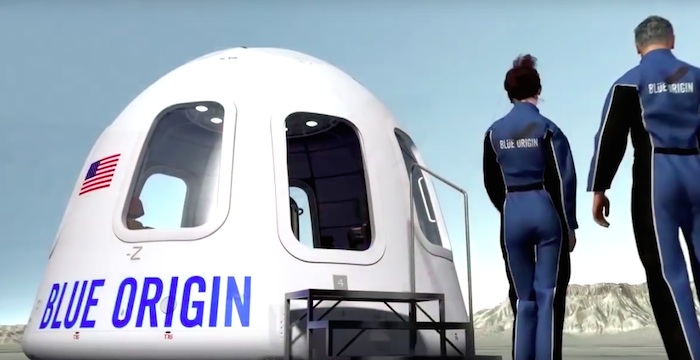
Quelle: Blue Origin
---
...und der harte Weg der Realität:
.
Legislation aimed at boosting Washington state’s space industry fizzles out
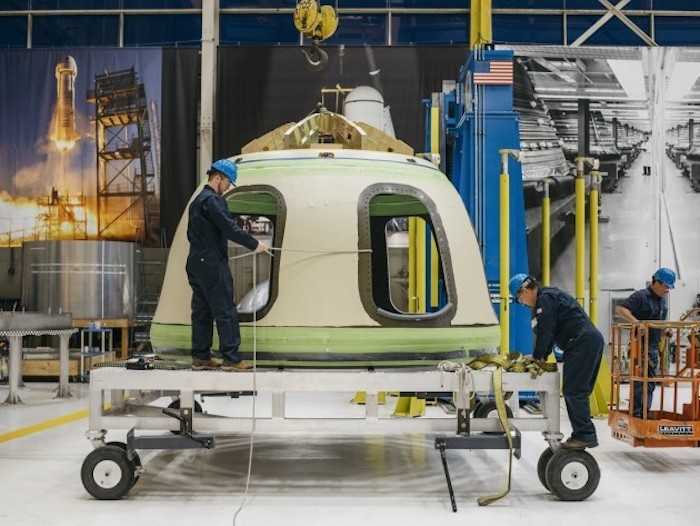
Engineers work on a spaceship crew capsule at Blue Origin’s production facility in Kent, Wash. (Credit: Blue Origin)
Two measures that would have lent a hand to Washington state’s fledgling space industry have been stalled in committee and aren’t likely to win approval during the state Legislature’s current session, the bills’ sponsor said today.
“We’re having such a tough time with the budget” that the space-related measures appear likely to go by the wayside this year, even though they’ve enjoyed bipartisan support, said state Rep. Jeff Morris, D-Mount Vernon.
One of the bills, HB 2434, would have created a space exploration center to boost Washington industry. That bill is stuck in House Appropriations Committee.
Previously: Jeff Bezos lifts veil on Blue Origin rocket factory, shares space vision
The other bill, HB 2226, would have let spacecraft manufacturers enjoy tax incentives that are similar to those currently offered to Washington’s airplane manufacturers, as in the Boeing Co. That bill didn’t make it out of the House Finance Committee.
HB 2226’s fate could have an impact on where Blue Origin, the space venture founded by Amazon billionaire Jeff Bezos, decides to locate a future manufacturing facility for its BE-4 rocket engine.
“I would say it would be crucial,” Robert Millman, Blue Origin’s general counsel, told reporters on Tuesday at the company’s headquarters in Kent, Wash.
The BE-4, which is designed to be fueled with liquefied natural gas, is still under development in Kent. Blue Origin says full-scale engine testing is due to begin at the company’s test range in West Texas by the end of this year.
.
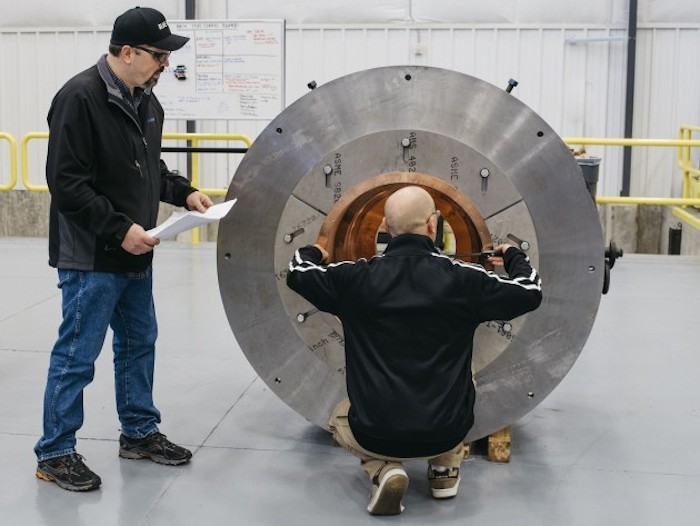
Engineers examine the BE-4 rocket engine’s main combustion chamber. (Credit: Blue Origin)
By 2019, the company expects to produce 12 engines a year for United Launch Alliance’s next-generation Vulcan rocket – and for Blue Origin’s in-house orbital launch vehicle, which will be assembled and launched in Florida.
If the BE-4 is as successful as Blue Origin hopes, the Kent facility won’t have enough capacity to fill the future demand for the BE-4, company president Rob Meyerson said. Blue Origin would have to decide within a year or two where to build a new engine factory.
“We will be conducting a thorough search of a number of states,” Millman said.
You want to go someplace that’s welcoming, that actually wants the company.
Bezos told reporters that the biggest factor in the selection process would be the availability of a “talented workforce,” in categories ranging from engineers to machine operators.
“Those jobs today are very sophisticated jobs, so that’s part of it,” Bezos said. “And then you want to go someplace that’s welcoming, that actually wants the company, so those are probably the two biggest things.”
Millman said proximity to other Blue Origin facilities, such as the company’s headquarters in Kent or its launch complex in Florida, would also be considered.
State and local officials in Florida gave Blue Origin about $40 million in incentives to establish the $200 million complex near NASA’s Kennedy Space Center. It’s expected to add about 330 jobs in the region, and help push Blue Origin’s overall employment past the 1,000 mark in the next year.
Blue Origin executives have not said how many additional jobs an expanded BE-4 engine factory might entail.
Bezos’ company isn’t the Evergreen State’s only player in the space business: The Washington State Space Coalition lists about 30 ventures with connections to outer space, ranging from Boeing and Aerojet Rocketdyne to Planetary Resources and Spaceflight.
Morris told GeekWire that the tax incentive bill was expected to have a $1 million impact on state revenue if it was limited to rocket engine production, and an $11 million impact if the incentives were extended to the manufacturers of all components that end up in outer space.
The problem is that lawmakers have been wrestling over a gap in the 2016 supplemental budget amounting to hundreds of millions of dollars. “It would just be another $11 million they would have to cut,” Morris said.
The proposal to create the space exploration center would have cost the state even less: an estimated $250,000 in matching funds annually. But it’s been hard for the state’s space-related businesses to focus attention on the issue. “One of the challenges is that they don’t have a huge lobbying effort,” Morris said.
Morris isn’t giving up hope. If the Legislature is called back into special session, the measures might get a second look, he said. And there’s always next year.
“I’m still working on this,” Morris said. “I’m going to come back and hit this hard next session.”
Quelle: GeekWire
4611 Views
